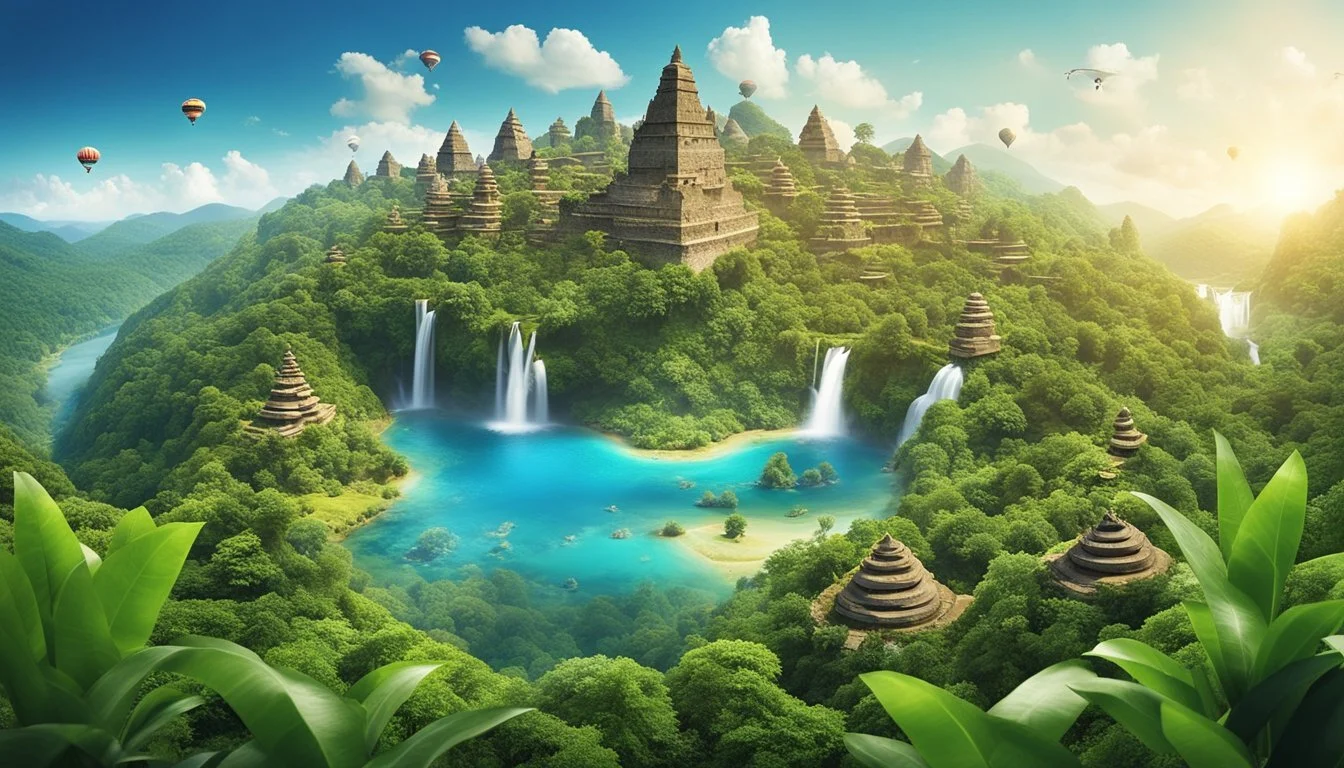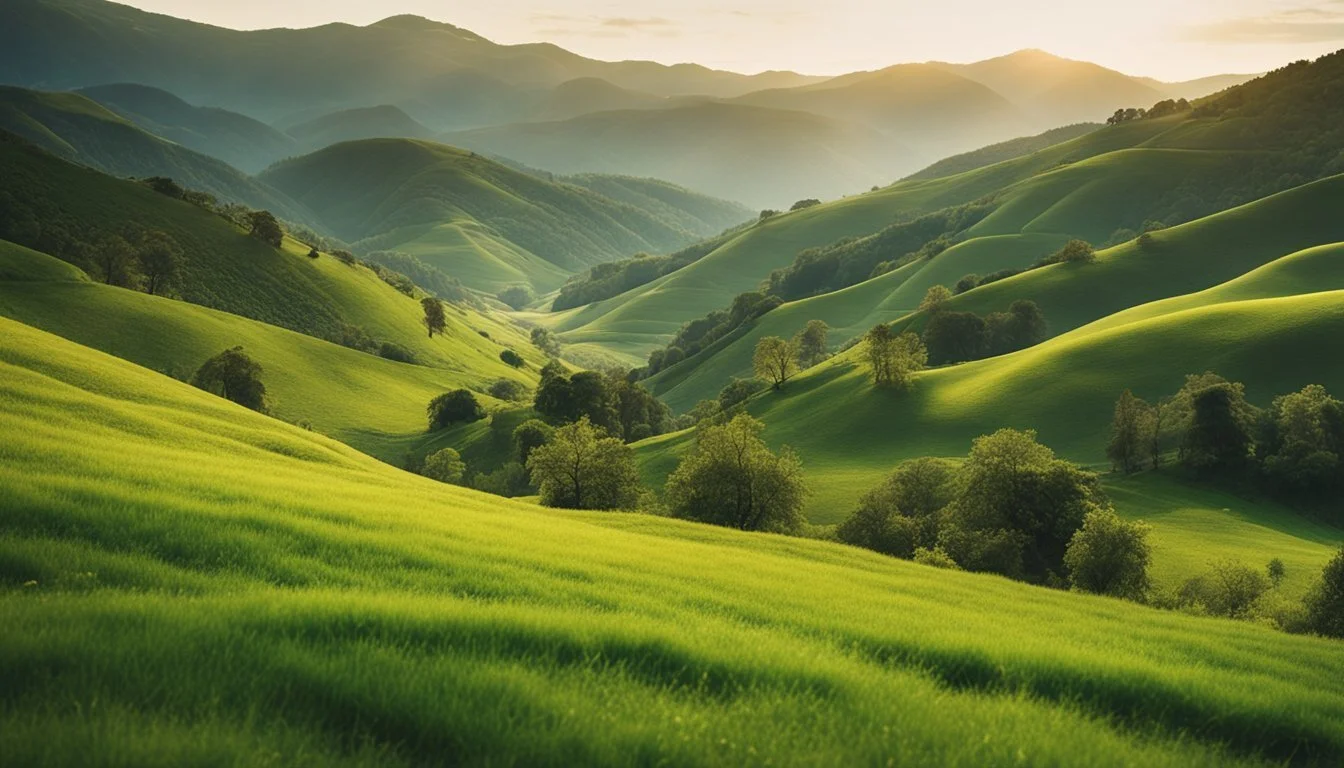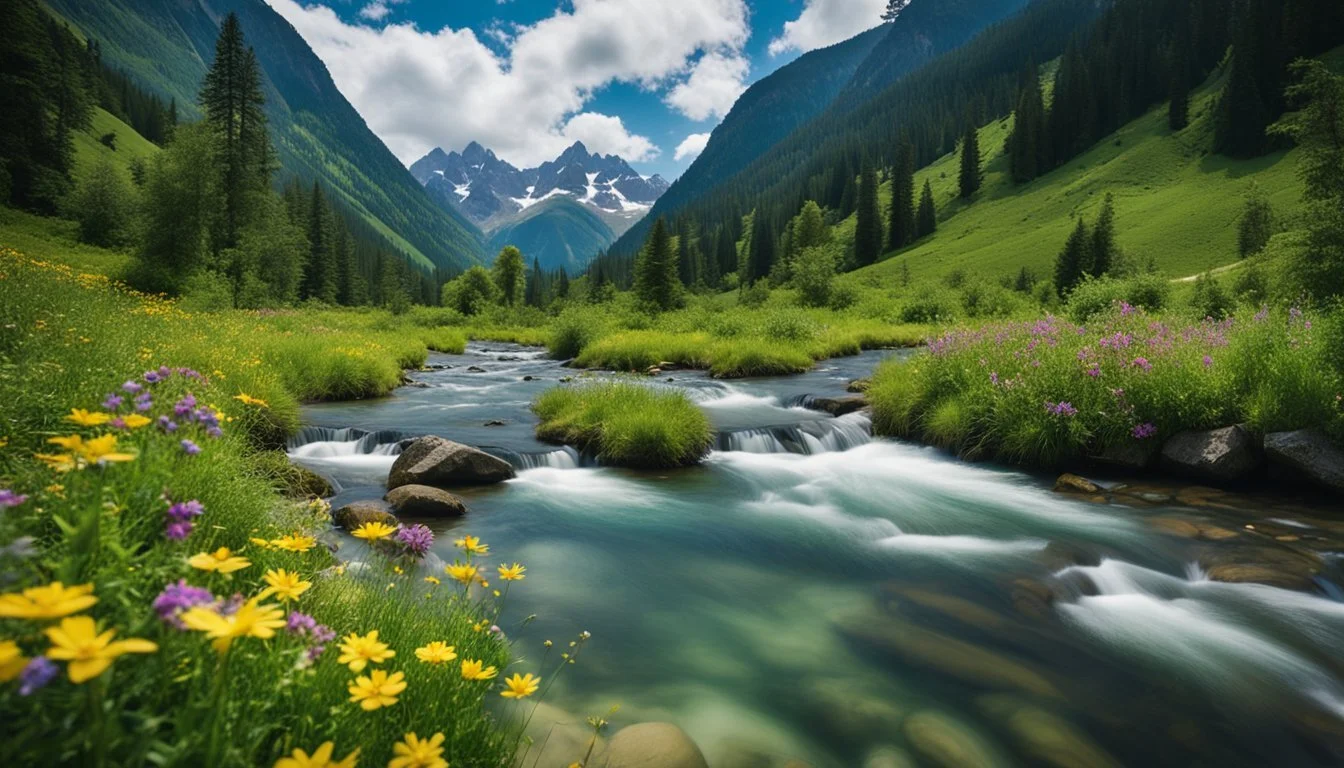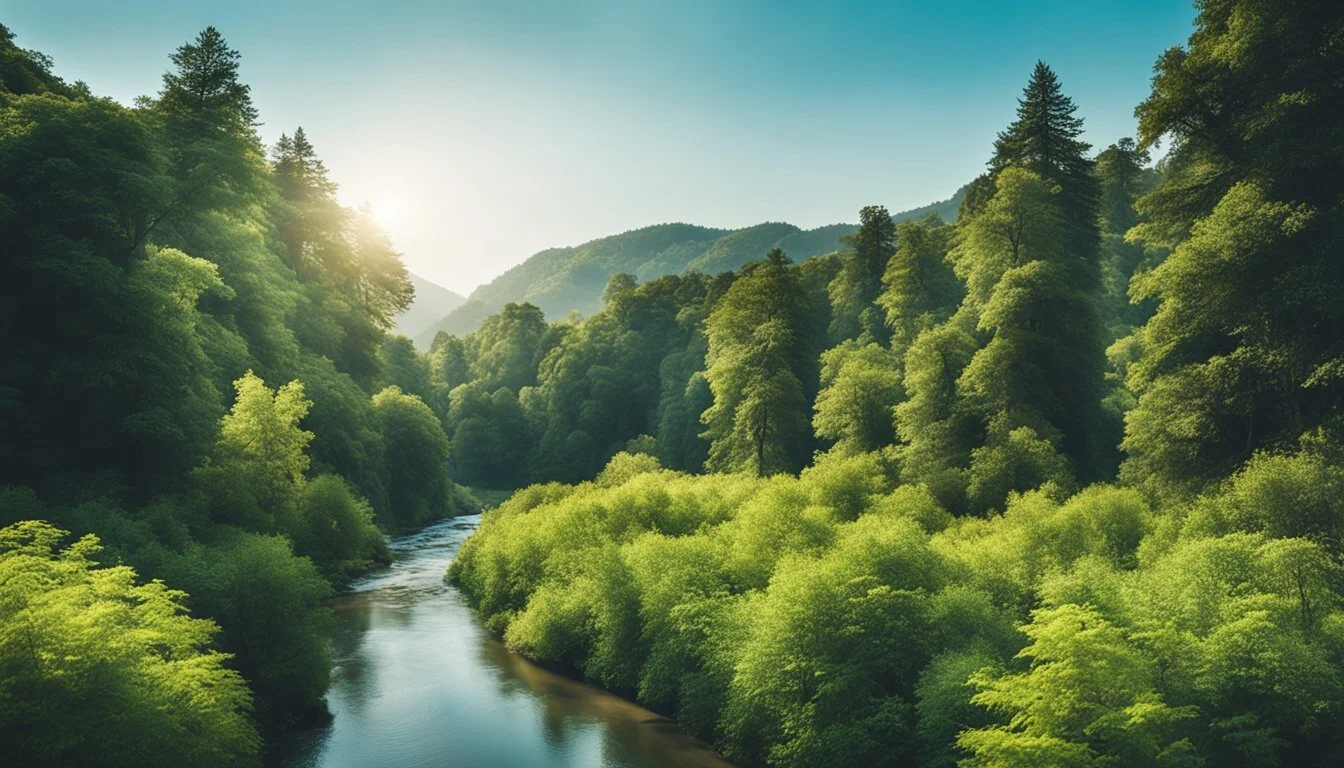18 Documentaries About Eco-Friendly Destinations
Sustainable Travel Insights
Documentaries about eco-friendly destinations offer viewers a unique lens through which to explore the world's most sustainable travel spots. These films delve into the environmental challenges and achievements of various locales, providing a comprehensive view of how tourism can harmonize with nature. By showcasing these stories, the documentaries inspire conscious travel choices and highlight the importance of preserving natural habitats.
Why should you watch these documentaries? They not only educate about specific destinations but also present sustainable practices that can be applied universally. Through captivating visuals and powerful narratives, these films encourage travelers to consider the environmental impacts of their journeys and to seek out ways to travel more responsibly.
1) Chasing Coral (2017)
"Chasing Coral" is an American documentary that premiered globally on Netflix. Directed by Jeff Orlowski, the film features a team of divers, photographers, and scientists documenting the rapid disappearance of coral reefs worldwide. The documentary provides undeniable evidence of climate change impacts on marine ecosystems.
The production involved extensive underwater photography, revealing the vibrancy and subsequent decline of coral reefs. This visual documentation aimed to raise awareness about the urgency of ocean conservation.
"Chasing Coral" won an Emmy for Outstanding Nature Documentary. It reached a broad audience through screenings at over 80 festivals and 3,000 community events globally. The film continues to inspire action towards protecting marine biodiversity.
For more information, visit Wikipedia.
2) Before the Flood (2016)
"Before the Flood" is a documentary directed by Fisher Stevens. The film features Leonardo DiCaprio as he travels around the world to witness the impacts of climate change firsthand. DiCaprio meets with scientists, activists, and world leaders to discuss the urgent need for environmental action.
The documentary showcases various regions affected by climate change. From the melting Arctic ice to deforestation in Indonesia, viewers see the stark realities of environmental degradation. These visuals are powerful and compelling.
DiCaprio's interviews include prominent figures such as Barack Obama, Pope Francis, and Elon Musk. These conversations highlight the global consensus on the necessity to combat climate change. The film aims to educate and inspire viewers to take action.
Watchers of "Before the Flood" gain a comprehensive overview of the current environmental crisis. It serves as a call to action for individuals and governments around the world. For more information on "Before the Flood," visit its Wikipedia page.
3) A Plastic Ocean (2016)
A Plastic Ocean, directed by Craig Leeson, began with a search for the elusive blue whale. Instead, it uncovers the shocking reality of plastic pollution in our oceans.
The documentary highlights the widespread impact of plastic waste on marine life and ecosystems, presenting a clear and unsettling picture of the consequences of plastic pollution.
Interviews with scientists and experts provide insights into the sources and solutions for this growing issue. The film combines stunning underwater footage with scenes of polluted beaches and marine life affected by plastic.
To learn more about A Plastic Ocean, visit its IMDb page.
4) Tomorrow
"Tomorrow" (2015) presents an optimistic look at how local communities worldwide are addressing ecological challenges.
It explores various innovative solutions, from urban gardening to sustainable energy sources.
The film emphasizes the potential of grassroots movements to drive significant change.
It visits countries like France, India, and the US to showcase successful sustainability initiatives.
Each segment provides practical examples that can be replicated in different contexts.
"Tomorrow" has received praise for its hopeful outlook and actionable ideas.
For more information, visit IMDB.
5) The Biggest Little Farm (2018)
"The Biggest Little Farm" follows John and Molly Chester as they leave behind their urban lifestyle in Los Angeles to create a sustainable farm. Their journey takes them to Apricot Lane Farms, 200 acres of barren farmland, which they transform over eight years.
The film highlights their challenges, from pest invasions to unexpected weather conditions. Their commitment to working in harmony with nature remains steadfast.
Directed by John Chester, the documentary emphasizes the importance of biodiversity and sustainable farming practices.
It showcases the beauty and complexity of nature while illustrating the hard work involved in sustainable farming.
For more information, visit IMDB.
6) Our Planet
Our Planet (2019) is a groundbreaking documentary series that highlights the beauty and fragility of our natural world. Narrated by the renowned Sir David Attenborough, it takes viewers on a journey through diverse habitats, from remote Arctic wilderness to the lush rainforests of South America.
The series showcases the interconnectedness of life on Earth, emphasizing the delicate balance that maintains ecosystems. The footage, captured in ultra-high definition, reveals stunning landscapes and close encounters with wildlife, creating a visually immersive experience.
Narrative themes include the impact of human activity on habitats and the pressing need for conservation efforts. The documentary combines striking visuals with scientific insights, making it both informative and engaging for viewers of all ages.
For more information on Our Planet, visit IMDB.
7) The Human Element (2018)
"The Human Element" documents the work of environmental photographer James Balog. Through striking visuals, the film illustrates the profound effects humans have on nature.
James Balog's career spans four decades. In this film, he explores the impact of human activities on the Earth's four classical elements: earth, water, air, and fire.
The documentary captures the lives of Americans facing the harsh realities of climate change. From wildfires to rising sea levels, viewers see the direct consequences of environmental disruption.
Balog's aim is to inspire a reevaluation of humanity's relationship with the natural world. By putting a human face on environmental issues, "The Human Element" provokes thought and action.
For more information on "The Human Element," visit IMDb.
8) Living the Change: Inspiring Stories for a Sustainable Future (2018)
"Living the Change: Inspiring Stories for a Sustainable Future" is an insightful documentary addressing global crises by presenting practical solutions. Directed by Jordan Osmond and Antoinette Wilson, this film highlights how individuals can make impactful changes in their own lives and communities.
The documentary features stories of real people who have adopted sustainable and regenerative practices. By showcasing everyday heroes, it emphasizes that anyone can contribute to a more sustainable world.
Key themes explored include sustainability, ecology, and permaculture. The film also touches on the roles of local initiatives and grassroots movements in driving environmental change.
For more detailed information, visit the IMDb page about "Living the Change: Inspiring Stories for a Sustainable Future."
9) 2040 (2019)
"2040" is a visionary documentary directed by Damon Gameau, released in 2019. The film imagines a future where climate change is actively addressed and successfully mitigated. Gameau travels the world, meeting with scientists, farmers, and innovators to uncover practical solutions already in practice.
The documentary emphasizes regenerative practices and sustainable technologies that can combat climate issues. Gameau explores diverse sectors, such as energy, agriculture, and urban planning, to showcase these sustainable efforts.
"2040" is unique in its hopeful outlook, presenting a roadmap for a better future. It aims to inspire global action and change by showing scalable and feasible solutions. The narrative combines interviews, computer-generated visuals, and real-world examples to highlight its points.
The film appeals to a wide audience, including families, policymakers, and educators, seeking to inform and inspire about actionable climate solutions. It stands out for its positive perspective amidst a genre often focused on dire warnings.
For more information, visit IMDB.
10) Ice on Fire (2019)
"Ice on Fire" is a 2019 documentary produced and narrated by Leonardo DiCaprio. This film focuses on innovative solutions aimed at mitigating climate change.
Directed by Leila Conners, it examines methods to reduce carbon emissions and explores how carbon sequestration can draw CO2 from the atmosphere.
The documentary presents various groundbreaking projects and strategies from around the world.
It showcases the dedicated efforts of scientists and activists working to reverse the effects of global warming.
Notably, different carbon drawdown projects are highlighted, emphasizing the potential for large-scale environmental impact.
"Ice on Fire" premiered at the Cannes Film Festival and received positive accolades for its in-depth approach.
It provides viewers with data-driven insights and actionable solutions in the fight against climate change.
For more information, visit IMDb.
11) Artifishal (2019)
Artifishal, directed by Josh "Bones" Murphy, is an insightful documentary produced by Patagonia. It delves into the troubling issues facing wild salmon populations.
The film explores the environmental impact of fish hatcheries and fish farms. These facilities, intended to support fish populations, often end up harming them.
Shot in various locations, Artifishal highlights the delicate balance of natural ecosystems. It showcases the efforts of environmentalists fighting to protect wild fish from extinction.
Rivers and natural habitats play a crucial role. The documentary underscores the importance of preserving these environments for future generations.
Viewers are prompted to reflect on humanity's relationship with nature. The film questions the sustainability of current practices in fish farming.
Artifishal can be seen as a call to action. It emphasizes the need for change to ensure the survival of wild salmon and their ecosystems.
For more details about the film, visit IMDB.
12) Honeyland (2019)
"Honeyland" captures the life of Hatidze Muratova, one of the last wild beekeepers in Europe. Set in the rugged mountains of Macedonia, the film documents her traditional methods of beekeeping.
Hatidze lives in a remote village with her ailing mother. Her relationship with nature and bees is harmonious, reflecting a sustainable way of living.
The documentary also explores the tension between traditional practices and modern intrusions. When new neighbors arrive, their commercial approach to beekeeping threatens the delicate balance Hatidze maintains.
The filmmakers, Tamara Kotevska and Ljubomir Stefanov, use stunning visuals to depict the natural beauty and harsh realities of rural life. The film is both a personal story and a broader commentary on sustainability.
For more information, see Honeyland on Wikipedia.
13) Kiss the Ground (2020)
"Kiss the Ground," directed by Rebecca Tickell and Josh Tickell, is a documentary that focuses on soil regeneration as a pivotal solution to the climate crisis. This 2020 film sheds light on how regenerating the world's soils can stabilize Earth's climate quickly.
Narrated by Woody Harrelson, the documentary features stunning visuals and compelling graphics. The film employs footage from NASA and NOAA to illustrate its points clearly.
It highlights the potential to restore lost ecosystems and create abundant food supplies through sustainable farming practices. The documentary provides an optimistic view on combating climate change.
For more detailed information, you can visit its Wikipedia page.
14) RiverBlue (2016)
"RiverBlue" is a documentary that follows river advocate Mark Angelo on a global journey to explore and expose the impact of the fashion industry on the world's rivers. The film is narrated by Jason Priestley, a known supporter of clean water initiatives.
This documentary highlights how the fashion industry, one of the world's most pollutive sectors, contributes to the degradation of vital water sources. Through breathtaking visuals and compelling storytelling, "RiverBlue" shows the stark contrast between beautiful, untouched rivers and those ruined by industrial pollution.
"RiverBlue" doesn't just highlight the problems but also delves into solutions. It underscores the importance of sustainable practices within the fashion industry to protect and restore river systems. The film serves as a call to action for both consumers and industries to adopt more eco-friendly and water-conscious practices.
For more information, visit Wikipedia.
15) The True Cost (2015)
"The True Cost" explores the devastating impacts of fast fashion on both the environment and the lives of the workers involved in garment production.
The documentary highlights how the demand for cheap, trendy clothing contributes to environmental degradation. It reveals the extensive use of water and chemicals in textile production.
Workers in garment factories often face hazardous conditions with little pay. The film brings to light the human cost of cheap fashion, sharing stories from those who endure these conditions daily.
For more information, visit IMDb: The True Cost.
16) Anote’s Ark (2018)
"Anote’s Ark" is a Canadian documentary film directed by Matthieu Rytz.
The film focuses on the Pacific island nation of Kiribati, which faces an existential threat due to climate change and rising sea levels.
Former President Anote Tong is a central figure in the documentary, advocating for his people's plight on the global stage.
The documentary highlights the severe impact of climate change on Kiribati's inhabitants, making it poignant and urgent.
Through personal stories, "Anote’s Ark" brings attention to the human side of environmental issues, particularly how climate justice and migration intersect.
For more information, visit Anote's Ark on IMDb.
17) The Game Changers (2018)
The Game Changers, directed by Louie Psihoyos and released in 2018, explores the benefits of a plant-based diet. The documentary follows James Wilks, a Special Forces trainer, as he seeks the optimal diet for peak human performance.
Produced by notable figures like James Cameron, Arnold Schwarzenegger, and Jackie Chan, it features athletes and experts who discuss the environmental impacts of meat consumption.
The film highlights the reduced carbon footprint and resource conservation associated with a plant-based diet, making a compelling case for its adoption to support a healthier planet.
For more information on The Game Changers, visit Wikipedia.
18) Love Thy Nature (2014)
Love Thy Nature, narrated by Liam Neeson, explores the profound connection between humans and the natural world. Released in 2014, this documentary speaks to how humans have increasingly lost touch with nature.
The film showcases the beauty and intimacy of our relationship with nature. Through breathtaking visuals, viewers are taken on a cinematic journey, highlighting the symbiosis between humans and the environment.
This film won 27 awards, emphasizing its impact and the importance of its message. It advocates for a renewed connection with nature, suggesting that such a relationship can provide a deep sense of purpose and wonder.
Neeson provides the voice for "Sapiens," representing collective humankind. His narration enhances the message that reconnecting with nature is essential for personal and environmental well-being.
Love Thy Nature is available for viewing on platforms like Vimeo On Demand and has subtitles in multiple languages, making it accessible to a global audience. The documentary's stunning cinematography and compelling narrative make it a must-watch for those interested in eco-friendly destinations and nature conservation.
For more information, visit Love Thy Nature on IMDb.
Importance of Eco-Friendly Travel
Eco-friendly travel not only helps in preserving the natural environment but also plays a significant role in maintaining and respecting local cultures and communities.
Environmental Benefits
Eco-friendly travel minimizes negative impacts on the environment. Choosing sustainable accommodations like green-certified hotels or eco-lodges reduces energy consumption and waste. Opting for public transportation or bicycle rentals cuts down on carbon emissions. Reducing plastic use by carrying reusable water bottles and bags can help combat plastic pollution.
Additionally, participating in conservation practices, such as wildlife sanctuaries over exploitative animal tourism, preserves biodiversity. Travelers can contribute to reforestation projects or support local environmental initiatives. These practices ensure natural habitats are protected for future generations to enjoy.
Cultural Preservation
Sustainable tourism supports and respects local communities. Staying in locally-owned accommodations or farm stays ensures that tourism revenue benefits local economies. Engaging with local guides and artisans fosters cultural exchange and understanding. Participating in traditional customs and practices, while being respectful, helps in preserving cultural heritage.
Avoiding over-commercialized destinations and instead choosing less-visited areas distributes tourism benefits more evenly and prevents overtourism. Eco-friendly travelers can attend community events or volunteer in local projects, ensuring their travel experiences are mutually beneficial and culturally enriching.
Characteristics of Eco-Friendly Destinations
Eco-friendly destinations are distinguished by their commitment to sustainable practices and active community involvement. These qualities ensure that tourism benefits both the environment and local residents.
Sustainable Practices
Sustainable practices are integral to eco-friendly destinations. These include the use of renewable energy sources like solar, wind, or geothermal power. For instance, in Iceland, electricity and heat are entirely generated from renewable sources.
Waste management is another crucial aspect. Efficient recycling programs and waste reduction strategies are implemented to minimize environmental impact. Many destinations also emphasize water conservation by using technologies like low-flow fixtures and rainwater harvesting systems.
Moreover, eco-friendly destinations promote responsible tourism by encouraging less impactful travel options, such as public transportation, biking, or walking. They often support eco-lodges and hotels that adhere to sustainability standards, including using eco-friendly materials and promoting energy conservation.
Community Involvement
Active community involvement is a hallmark of eco-friendly destinations. Locals are engaged in tourism planning and decision-making processes, ensuring that their needs and perspectives are prioritized. This involvement can be seen in places like The Emerald in Cornwall, where local input shaped zero carbon tourist accommodations.
Economic benefits from tourism are often directed back into the community. This is done through locally owned businesses and services, which helps sustain the local economy and preserve cultural heritage. Supporting local artisans and vendors is another way of ensuring community benefit.
In addition, eco-friendly destinations frequently support educational programs that inform both tourists and locals about environmental stewardship and cultural preservation. Community-driven initiatives like wildlife conservation projects or cultural festivals foster a stronger connection between visitors and the destination, enhancing the travel experience.
How to Choose Eco-Friendly Documentaries
Selecting suitable eco-friendly documentaries involves considering both the credibility of the information presented and the presence of any environmental certifications.
Evaluating Documentary Credibility
When evaluating documentary credibility, look for established filmmakers and reputable production companies. Documentaries produced by well-known environmental organizations like National Geographic or WWF often have extensive research backing them.
Investigate the experts featured. Scientists and activists with known credentials and published works lend credibility. Search for peer reviews or critiques from trusted sources.
Examine the documentary's reception. Awards and recognition from film festivals and environmental groups can be good indicators. Be cautious of content that relies heavily on anecdotal evidence without supporting data.
Checking for Environmental Certifications
Environmental certifications can help identify the authenticity and impact of a documentary. Certifications from organizations such as the Global Reporting Initiative (GRI) or certifications like the Certified B Corporation suggest a commitment to sustainable practices.
Review the documentary for any partnerships or endorsements from environmental bodies. These endorsements often reflect rigorous evaluations of the film's content and its adherence to promoting sustainability.
Pay attention to the production methods discussed or displayed. Documentaries that showcase or are transparent about sustainable filming practices can further assure viewers of their eco-friendly intentions.









